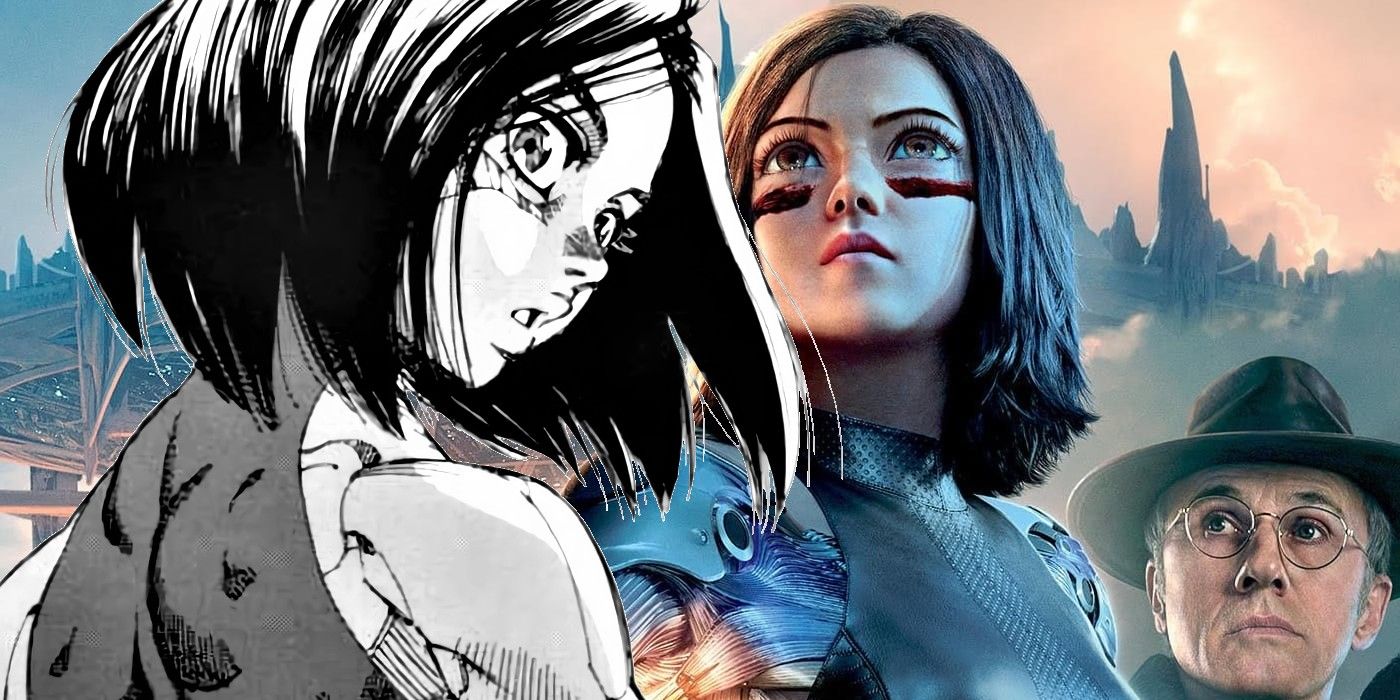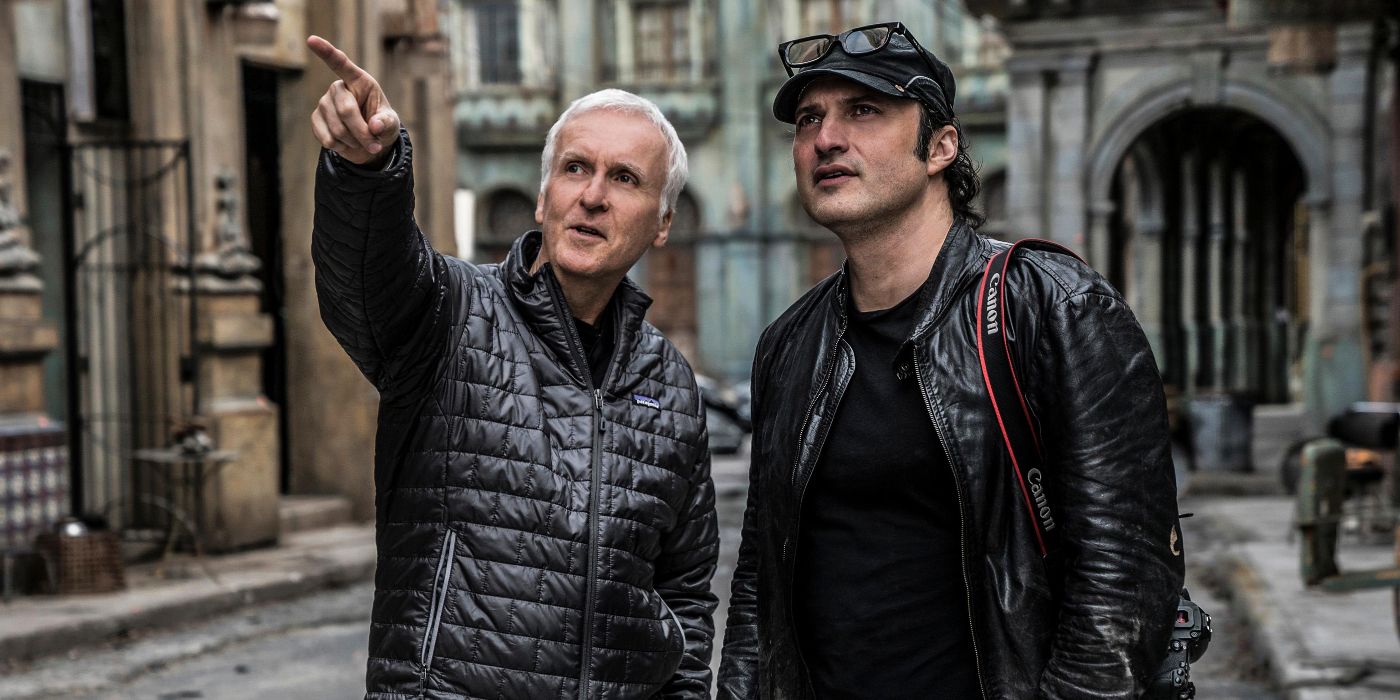James Cameron spent years developing the Alita: Battle Angel movie - but why didn't he direct it? Published from 1990 to 1995 in magazine form, the Battle Angel Alita manga was created by Yukito Kishiro and remains a popular entry in the Japanese cyberpunk genre. Set in a post-apocalyptic future, the series revolves around an amnesiac female cyborg discovered in a junkyard by Dr. Ido, a kindly cybernetics specialist who rebuilds her and names her Alita. Realizing she possesses incredible fighting abilities, Alita sets out to learn the truth about her past, setting her on the path to a showdown with the diabolical genius Desty Nova.
It didn't take long for Hollywood to recognize the cinematic potential of Kishiro's source material. After the property was brought to his attention by Guillermo del Toro, Cameron and 20th Century Fox purchased the Battle Angel Alita domain name in 2000. However, the live-action movie didn't start production until October 2016, almost exactly one year after Robert Rodriguez replaced Cameron as the film's director. Initially scheduled for the summer of 2018, Alita: Battle Angel was later delayed to the following December to give Rodriguez more time to finalize its effects, then again to February 2019 at Cameron's behest (who felt it had a better shot at success there). It would go on to become a modest critical and commercial hit, but has yet to get a sequel despite the ongoing fan campaign.
Despite being credited as a co-writer and producer on the finished film, Cameron's busy schedule prevented him from directing Alita: Battle Angel. The filmmaker had originally planned to tackle the project as his feature followup to Titanic in the early 2000s, but pushed it back in 2004 after deciding to make his documentary Aliens of the Deep first. He delayed it again to focus on directing Avatar (back when it was called Project 880) in 2005, but with the intention of eventually helming Alita in the future. Everything changed after that, with Avatar going on to break Titanic's global box office record and usher in an new era for blockbusters in the 2010s.
Cameron didn't immediately step away from Alita in the wake of Avatar's success. Just a few months after the film opened, his longtime producer Jon Landau confirmed the project was still moving forward, with writer Laeta Kalogridis (then known for working on Oliver Stone's Alexander and the Bionic Woman TV show reboot) contributing to the script. Still, it soon became obvious Cameron was more passionate about making the Avatar sequels than Alita, with the franchise's environmental themes speaking to his interests. He re-confirmed his intention to helm Alita after the two Avatar sequels were done in 2011, but had to postpone it again as he continued to expand the story for his Avatar trilogy (eventually turning his three-part arc into five movies).
Recognizing the project would only continue to be delayed if he stayed onboard as director, Cameron agreed to allow Rodriguez to helm Alita: Battle Angel so long as he could condense Cameron and Kalogridis' previous screenplay work with Cameron's 600 pages of notes into a shooting script. Speaking to Yahoo! Movies in 2018, Rodriguez joked there "were probably 400 more" pages of notes Cameron didn't give him, but also said they "helped me crack the script." Interestingly, the final movie plays out as a hybrid of the two directors' previous work, combining Cameron's interest in technology that allows humans to transcend their mortal forms with Rodriguez's storytelling focus on class differences, his long track record of casting Latinx leads, and knack for crafting fast-paced action scenes with eye-popping visuals.
In the end, Alita arguably benefited from all the delays and Cameron stepping away. It not only gave photorealistic CGI and motion-capture time to catch up to where Rodriguez needed them to be to realize his vision, it also allowed the latter to step in and incorporate elements (like the diverse cast) that Cameron probably wouldn't have included in his version of the movie. As for the future, it's unclear if Alita will ever get the sequel teased in its final scene (where Edward Norton cameos as Nova). Even with the demand from fans, there's not a ton of financial incentive for Disney to make Alita 2, now that it owns Fox's film and TV brands. The first movie covered its $170 million budget and then some, but was nowhere near as lucrative as Disney properties like the MCU or Star Wars. Still, if there's one thing Alita fans have learned, it's to be patient when it comes to big screen adaptations.


